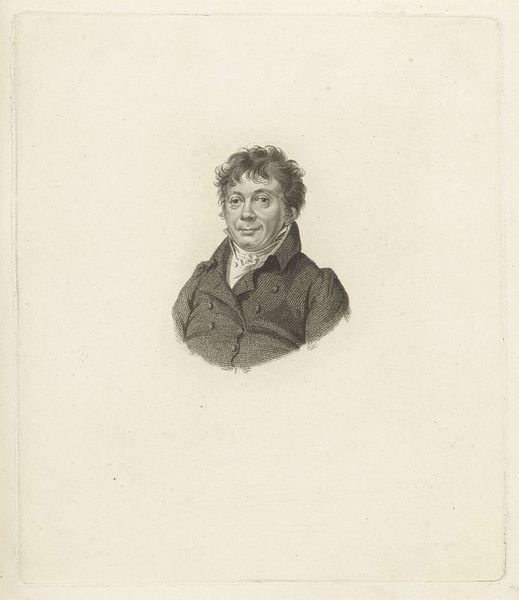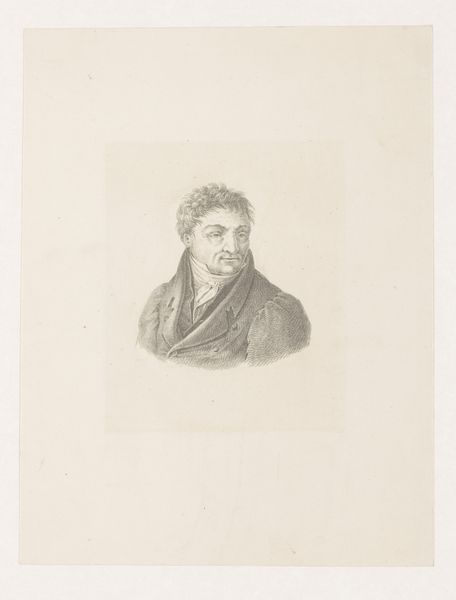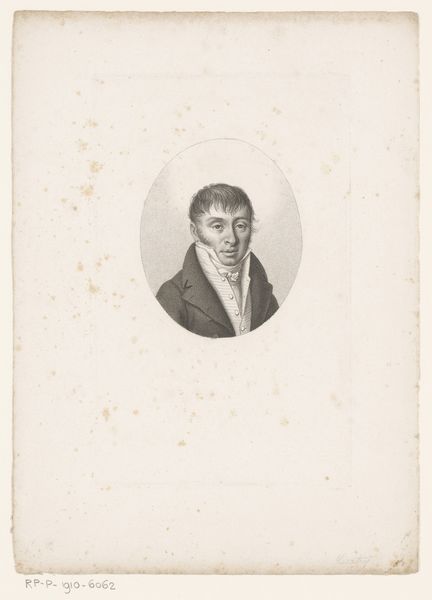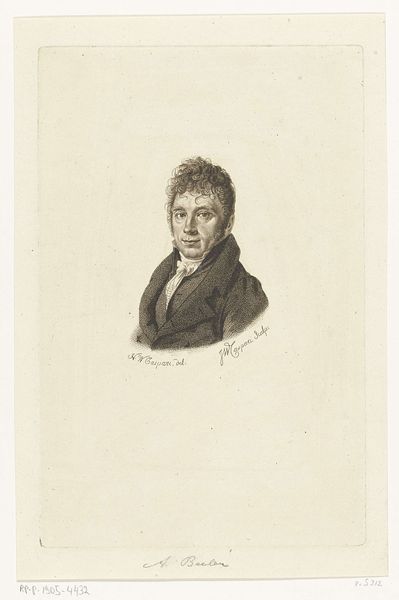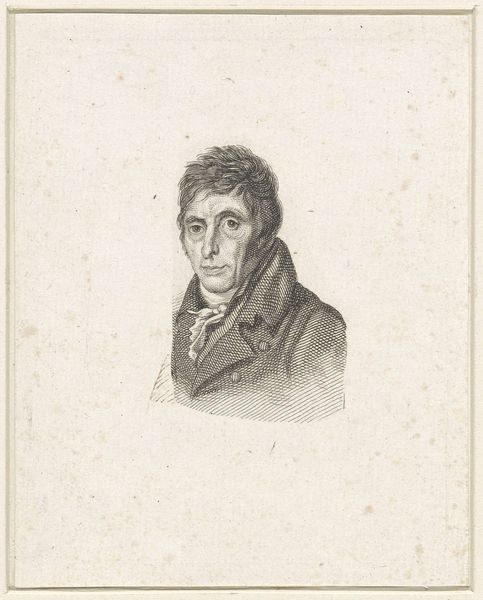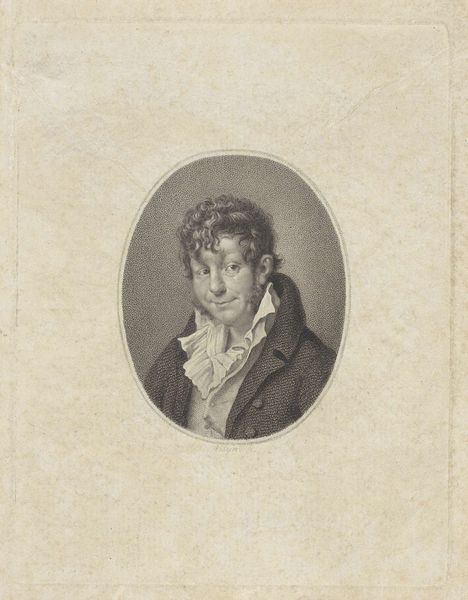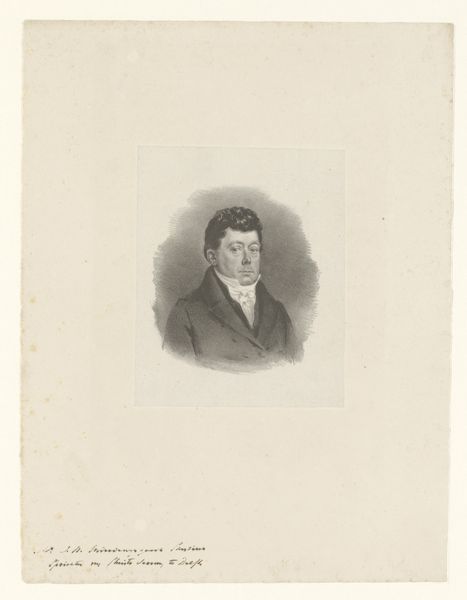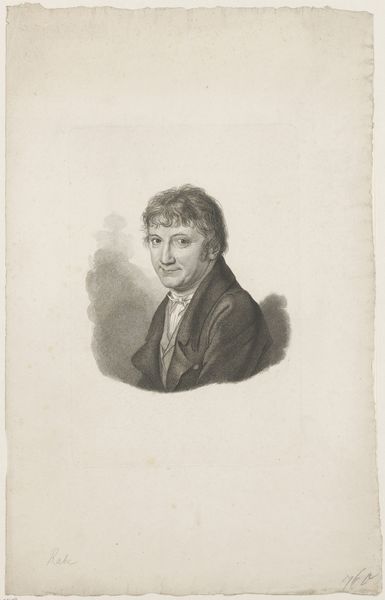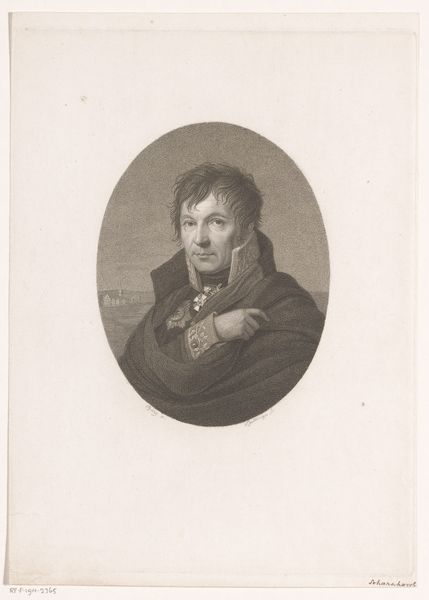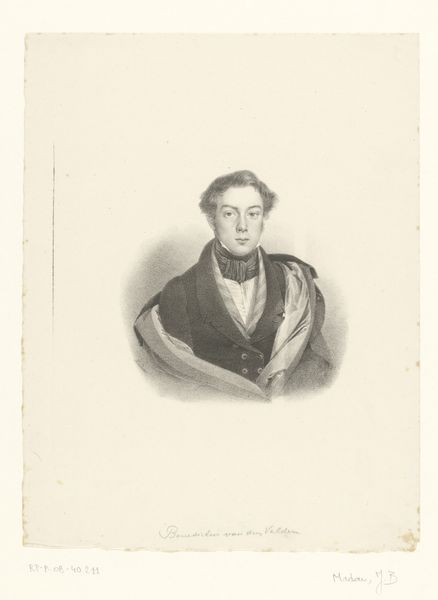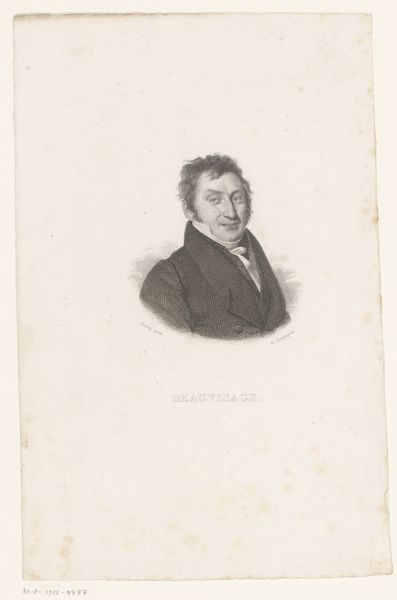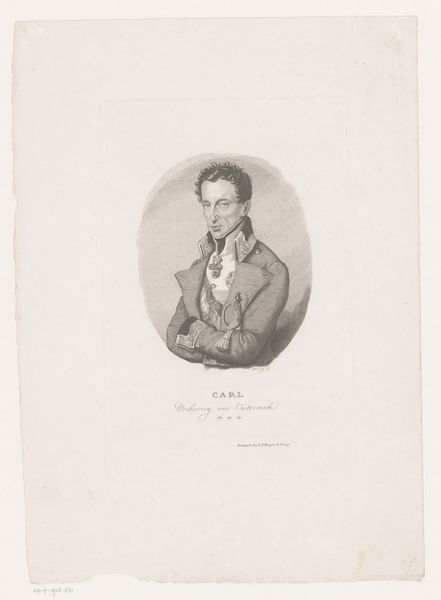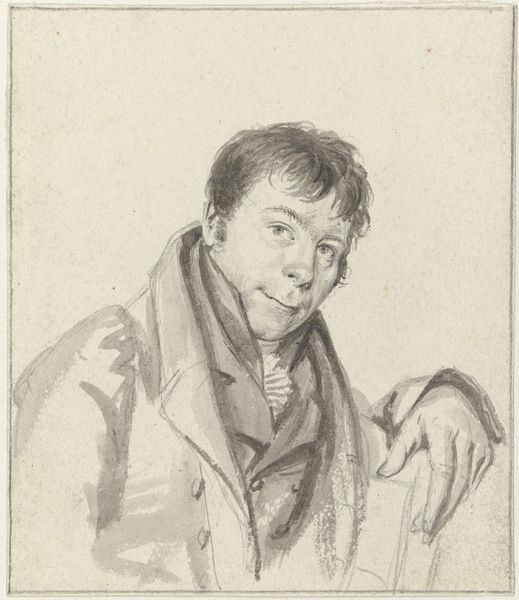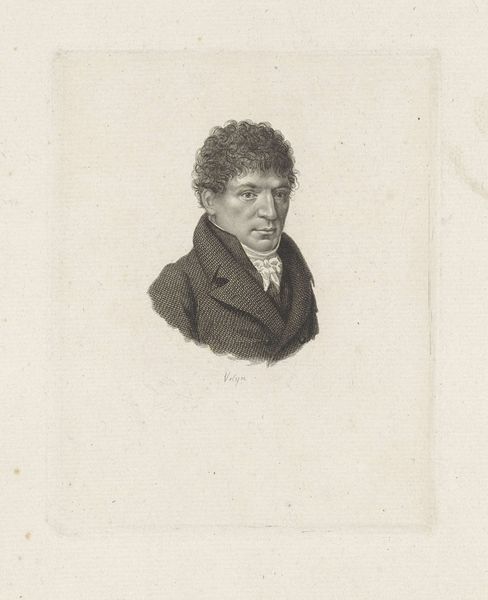
drawing, pencil
#
portrait
#
pencil drawn
#
drawing
#
imaginative character sketch
#
neoclacissism
#
light pencil work
#
pencil sketch
#
personal sketchbook
#
idea generation sketch
#
pencil drawing
#
ink drawing experimentation
#
pencil
#
sketchbook drawing
#
pencil work
#
realism
Dimensions: height 243 mm, width 177 mm
Copyright: Rijks Museum: Open Domain
Jan Willem Caspari made this portrait of Bernardus Antonius Fallee using etching and engraving techniques. The image presents us with a window into the social hierarchies of the Netherlands in the early 19th century. Bernardus Antonius Fallee’s formal attire and composed demeanor speak to his status within a particular social class. But this portrait is not just a record of Fallee's likeness; it's a cultural artifact. It reflects the values and conventions of portraiture during a time when the Dutch were coming to terms with new social structures and governance. It was made during a time when the Netherlands was under French influence, and the old order was being challenged by revolutionary ideas. The institutional context of art production and consumption also played a significant role. The Rijksmuseum itself, where this etching is housed, embodies the Dutch endeavor to codify its cultural legacy and construct a national identity. To truly understand this work, we need to consult historical archives, delve into the artist's biography, and consider the economic conditions that shaped the art market. It’s through this interdisciplinary lens that we can grasp the full significance of this portrait.
Comments
No comments
Be the first to comment and join the conversation on the ultimate creative platform.
